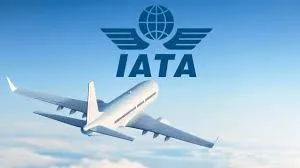Government aid especially in aviation has always been the hot topic but nobody expected that such would be the sole way-out to overcome this unprecedented situation for many. Since the beginning of the COVID-19 outbreak, the catastrophic atmosphere has spread and thus, air transport has most probably experienced the longest shut-down and the biggest crisis in its history. Therefore, the rapid cut of cash-flow due to the pandemic has dragged the airlines to call for state aids. Seeing the struggle of the lack of liquidity, many authorities have modelled various guidelines targeting the state aids as the cure such as European Commission’s (“EU”) Temporary Framework lastly amended in April 3, 2020. In the same sense with the EU, International Air Transport Association (“IATA”) multiple times has underlined the significance of the state’s position in saving the future of the airlines. In its various reports pointing out COVID-19 impacts, IATA has addressed governments to provide direct financial support, loans and tax reliefs needed by the airlines.
In parallel with the suggestions introduced, IATA has recently examined how far government aid as the purposed recipe achieved by the states. Government financial aid for airlines report dated May 26, 2020(“Report”) published by IATA, scrutinizes on sinking cash reserves of airlines and financial aids which are analogized to “life supports”.
According to the Report, the financial aid comprises of several aspects referring to loans, wage subsidies, loan guarantees, equity financing, ticket taxes, corporate taxes, route funds, cash injections and fuel taxes. IATA phrased that the states provided in total USD123 billion cash to the airlines until May 15, 2020. However, this amount is unfortunately not spread evenly as per the Report in which the countries having an emerging market are found to provide the least support to the airlines in the respective countries. As an illustration, whilst Turkey is indicated as one of the least aided countries, the United States (“the US”) has reached comparatively the highest volume among others.
The Report also criticizes the reactions of the most developed economies to airline’s calling in terms of financial aid. At this juncture, the tendency amongst those does not follow a straight line, rather, it ranges unsteadily. Nonetheless; the US, France, Japan and Germany has hit the highest volume of the government aid compared to other countries in a worldwide scale.
From an Asia-Pacific focused standpoint, Singapore is stated as the regional leader with holding almost four time’s higher volume of provided financial aid to the airlines in comparison to the others in the concerned region. Comparatively, according to the outcomes for Europe region; Germany, France, the Netherlands and Switzerland step forward, whereas Turkey and Greece hit the lowest levels to respond the financial need of the industry actors. By taking into account the stated facts, IATA in its Report makes a deduction that “Airlines in the more fragile economies have much less support”. The calls of some airlines seeking for backup have been heard. For instance, the Singapore Airlines were granted with more than USD13 billion in order to avoid the slammed economic status due to COVID-19 pandemic. Recently, the announcement has also made by the EU Commission on the amount of bail-out provided to Air-France KLM which is USD7 billion. Additionally, while Swiss authorities have already settled to guarantee loans of up to EUR1.2 billion to Lufthansa, Austrian Airlines has requested the government for EUR767 million in state aid.
On the other hand, the government aid is by and large comes with a price, even though there is no doubt that any backup is vital to the survival of the airlines during these pandemic times. To prove this statement, the aid to Air-France could be exemplified in which couple of strings attached. With regards to the aid provided, different conditions must be satisfied by Air-France from becoming more profitable and competitive airline to obtaining at least 2% of the fuel from a climate-neutral source by 2025. As in the Air- France case, IATA in its Report remarks that the “Aid is not focused on sustaining ‘viable’ business models”. What is worse, it adds that the majority of the aid provided by the states would leave the airlines with more debt, since more than half of the total government aids provided worldwide is generated from loans, loan guarantees and deferred taxes.
In consideration of all, IATA’s reasoning has sparked another question on whether the state aids serve the purpose of actually rescuing the airlines from the COVID-19 curbs or solely refer short-term temporal steps taken. On that note, IATA’s forecast ought to be reminded in which it asserts that air travel may recover more slowly than any other industry.
Ezgi Aysima Kır


